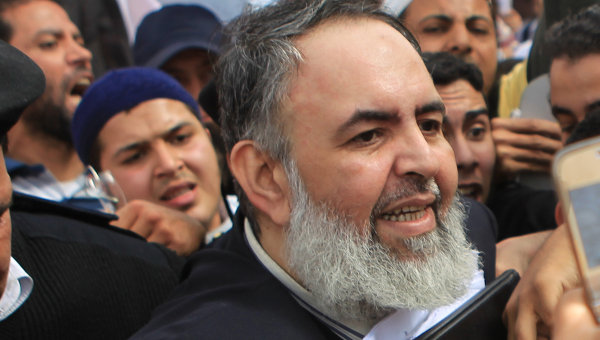The campaign for Ukraine’s parliamentary election of September 30th is scarcely underway and yet Prime Minister Viktor Yanukovich is already trying to steal it. Yanukovich was the man who sought to falsify the result of the presidential election of 2004, inciting the Orange Revolution. Back then, a peaceful and honest result was reached in the end because Ukraine’s President Leonid Kuchma refused to heed Yanukovich’s call to use violence to defend his rigged election. This time it appears that Yanukovich is prepared to do anything to remain in power.
The dirty tricks began in the midnight hours of August 11th, when Ukraine’s Central Election Commission (which is packed with Yanukovich placemen) refused to certify the largest opposition party, the bloc of former Prime Minister Yuliya Tymoshenko, to participate in the election. The technicality the commission cited would be absurdly funny if its potential results were not so incendiary: the CEC objected to the fact that the Tymoshenko bloc candidates listed only their home towns on the party list, not their precise street address. But Tymoshenko’s party successfully submitted its list in the very same format at the March 2006 election, which demonstrates the glaringly partisan nature of the election commission’s ruling.
By seeking to cling to power by hook or by crook, Yanukovich is likely to bring on the deluge. In Ukraine that means not only violent unrest, but economic decline and renewed repression. At the end of the day it could lead to the sort of huge street protests that marked the Orange Revolution, and their attempted violent suppression.
Recent history is replete with alarming examples of dictators and would be dictators who refuse to recognize when their time has run out. But for the past twenty years their blatant political chicanery has been met with a potent new force: the massed voices of ordinary people who refuse to be cowed. From the “People Power revolution that toppled Ferdinand Marcos in the Philippines in 1986 to Boris Yeltsin’s defiance of the attempted coup against Mikhail Gorbachev of August 1991, to the Rose, Orange, and Cedar Revolutions of recent years, dictators have been forced to admit defeat when enough people stand up to them.
Will it really be necessary for Ukrainians to repeat the Orange Revolution by again gathering in their millions to shame Yanukovich (a twice convicted violent felon before he entered politics) to change course? There is a person who might compel Yanukovich to retreat to democratic norms and thus hold off such protests — Russia’s President Vladimir Putin. It is certainly in Russia’s national interest to prevent chaos in the country’s big next door neighbor.
But Putin’s idea of what constitutes Russia’s national interest makes that type of intervention unlikely. Weak neighbors are states that the Kremlin can control, so why not expand Russian power by letting Ukraine slide into protest and anarchy if by doing so it brings that country back under Putin’s thumb? Moreover, Putin himself is in the business of sterilizing Russia’s democratic processes by handpicking his successor and having his courts and electoral commissions block his opponents from political participation, often tarring them as traitors. Someone with such contempt for the democratic rights of his own people is unlikely to champion them abroad.
As is usual with this ex-KGB man, Putin is being cunning about Ukraine, but he is deluding himself if he thinks that siding with Yanukovich will bring back effective Russian overlordship of Ukraine. The days of empire are over, no matter how much wealth oil and gas is bringing to Russia. Only if Ukraine maintains its independence will the imperial nostalgia of Russia’s elites be shattered.
So other pressure will need to be applied, primarily by the European Union and the United States. In 2004, both the EU and US were tardy in speaking in defense of Ukraine’s democrats. Only when the courage of millions of ordinary Ukrainians gathered in central Kyiv galvanized world opinion did the US and EU marshal the courage to stand up for an honest election result.
And the one state that did stand with Ukraine from the start back then, Poland, has now antagonized much of EU opinion, particularly in Germany, because of the paranoid behavior of its current leaders. So Polish influence in Union councils is at rock bottom. Luckily, the leaders of Europe’s three biggest states are different people than in 2004. Angela Merkel, Nicolas Sarkozy, and Gordon Brown appear to have a clearer appreciation of the Union’s security problems to its east, and so may find the will to act decisively now, rather than dither as their predecessors did when Ukraine moved into crisis in 2004.
Unless Ukraine’s democratic opposition is allowed to take part in the election, a new crisis is certain. Tymoshenko, who has survived three assassination attempts, is not the type of woman to surrender her campaign on a technicality.
While the Orange Revolution made ordinary Ukrainians more conscious of their rights than ever before, this alone cannot guarantee that they are certain to see those rights vindicated in the coming weeks. However, it will make the job of repressing them much harder. And isn’t that what the battle for democracy is all about?
Nina Khrushcheva, who teaches at The New School University in New York, is the author of Imagining Nabokov: Russia Between Art and Politics. This commentary is published by Daily News Egypt in collaboration with Project Syndicate (www.projectsyndicate.org )

